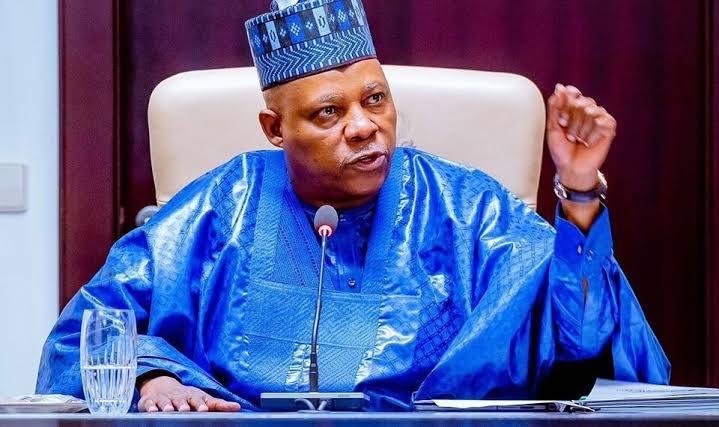
Vice President of Nigeria, Kashim Shettima has issued a stern warning about the dangers posed by Nigeria’s growing population of out-of-school children. Speaking at the Nigeria Governors’ Forum (NGF) International Conference on Girl Child Education in Abuja, Shettima stated that the country’s failure to address the issue could create serious future security and social risks.
“The child who remains out of school today will be a threat to their peers in the classroom tomorrow,” Shettima warned, emphasizing the importance of education for the nation’s future.
The vice president, represented by Sen. Ibrahim Hadejia, Deputy Chief of Staff to the President, restated the Federal Government’s commitment to reducing the number of out-of-school children through increased budgetary allocation and ongoing advocacy.
According to Shettima, recent data from a multiple indicator cluster survey revealed that 25.6% of primary school-age children and 29.6% of secondary school-age children are currently out of school. “Each child, abandoned to the streets, is a liability that the nation will one day pay for,” he said.
He called for a united approach to tackling the problem, stating that “a concerted, multi-sectoral approach involving the Federal Government, states, local governments, civil society, and international donors is required to address this issue.”
Shettima highlighted that the situation is particularly dire in northern Nigeria, where states like Kebbi, Zamfara, and Bauchi face the highest out-of-school rates, with over 60% of children not attending primary school. “We cannot allow ourselves to be held hostage by these frightening numbers,” he stated, calling for urgent action to address the crisis.
In terms of funding, Shettima noted that states and the Federal Government have increased education spending significantly, committing a combined N4.6 trillion to education in 2024. However, he stressed the need for even higher budget allocations to meet the country’s education goals.
“Our campaign to see 15 to 20 percent of the state budget allocated to education is not just a target, but a necessity,” Shettima concluded.








